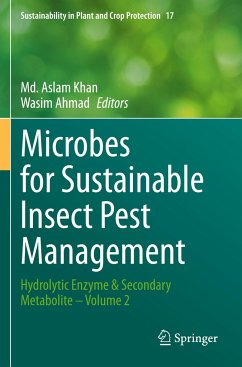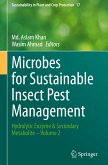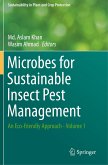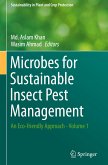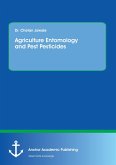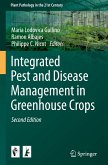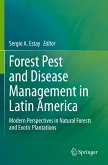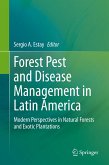The search for new strategies of pest control with safer molecules is currently of great importance and interest. Microbe-mediated biological crop protection is an attractive and promising technology with no concern for a negative impact on the environment and biodiversity. Microbial hydrolytic enzymes such as proteases, chitinases, lipases, etc. are attractive for this purpose. They present toxic properties and act synergistically to control pest attacks. Also, some metabolites, that microorganisms produce for their survival or defense, can be explored and exploited for plant protection.
The focus of this Volume is on the potential of microbial hydrolytic enzymes and their metabolites in agroecosystem functioning. Subsequent chapters review topics such as microbial hydrolytic enzymes as powerful management tools, chitinases in IPM of agro-horticultural crops, metabolites as pesticides and the importance of the metabolites of entomopathogenic fungi, metabolites and virulence factors. Other topicas include: microbial-based nanoparticles, recombinant DNA technologies to improve the efficacy of microbial insecticides, the effects of entomopathogens on insect predators and parasitoids, and the management of major vegetable insect pests.
This Volume provides detailed accounts on the safe use of microbial products for sustainable management of insect pests. Its aim is to build solid foundations for the students, teachers, and researchers interested in eco-friendly management of important insect crop pests.
The focus of this Volume is on the potential of microbial hydrolytic enzymes and their metabolites in agroecosystem functioning. Subsequent chapters review topics such as microbial hydrolytic enzymes as powerful management tools, chitinases in IPM of agro-horticultural crops, metabolites as pesticides and the importance of the metabolites of entomopathogenic fungi, metabolites and virulence factors. Other topicas include: microbial-based nanoparticles, recombinant DNA technologies to improve the efficacy of microbial insecticides, the effects of entomopathogens on insect predators and parasitoids, and the management of major vegetable insect pests.
This Volume provides detailed accounts on the safe use of microbial products for sustainable management of insect pests. Its aim is to build solid foundations for the students, teachers, and researchers interested in eco-friendly management of important insect crop pests.

